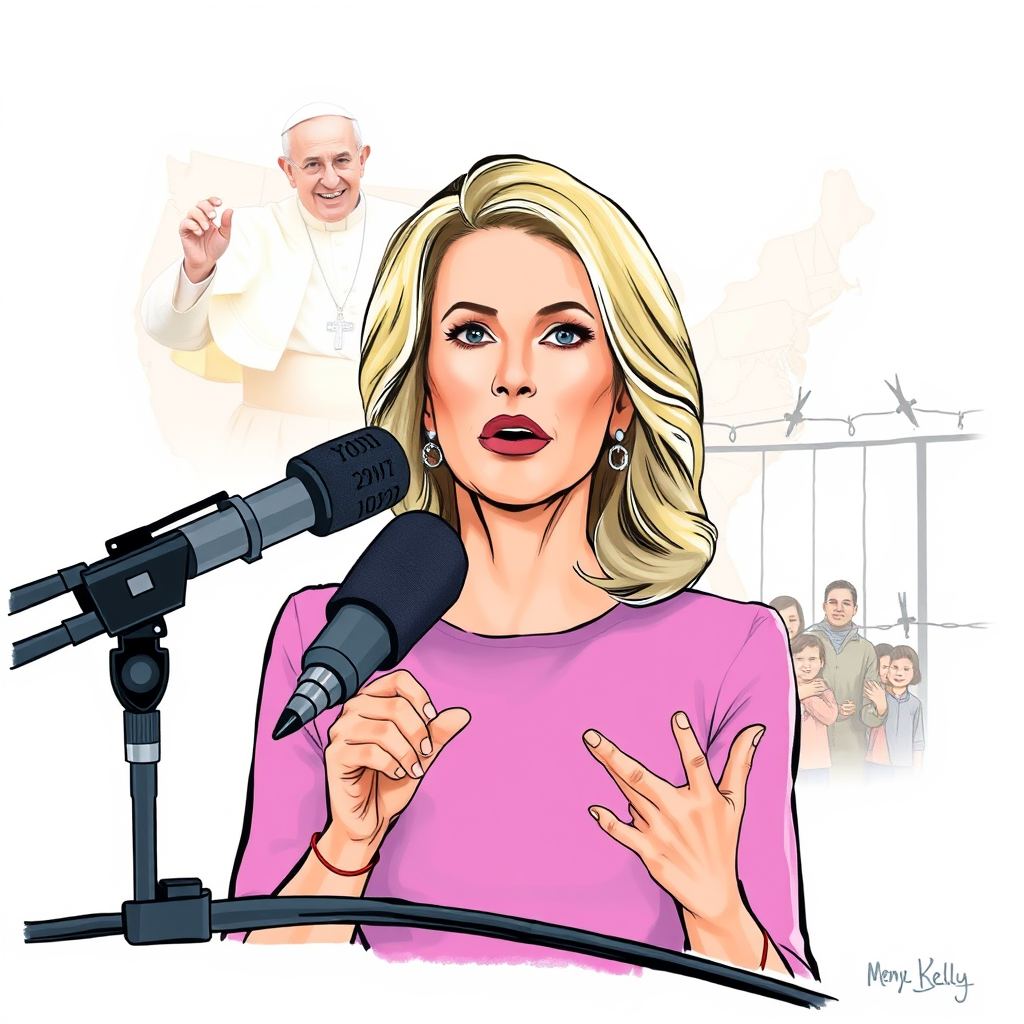Megyn Kelly Blasts Pope Francis’ Immigration Stance

Megyn Kelly sparked controversy immediately following the death of Pope Francis, sharply criticizing his policies on immigration during her SiriusXM show. While the pontiff’s passing prompted mourning and reflection amongst Catholics globally, Kelly dedicated her first episode after the announcement to a scathing assessment of his progressive leanings.
According to reports from The Daily Beast, Kelly, a former Fox News commentator and NBC host, focused her criticism on Francis’s approach to immigration and poverty, accusing him of steering the Catholic Church “in a leftward direction” through his compassion for immigrants. This critique came just days after Pope Francis delivered an Easter address urging against hostility towards immigrants, following a Vatican visit by Vice President JD Vance.
Kelly, a lifelong Catholic, asserted that the Church had been actively involved in assisting immigrants with housing and support, “irrespective of the fact that they’re here illegally.” She questioned how charitable donations were being allocated, implying a disconnect between the Church’s actions and the concerns of some parishioners.
The commentator further expressed frustration with what she described as a “tug of war” between the Pope’s messaging and traditional Catholic teachings, particularly in relation to public safety. She connected the influx of undocumented immigrants to violence, referencing the murder of Laken Riley and suggesting that not all immigrants are devout Catholics. Kelly contrasted the expectation of traditional Easter observances with her opposition to “funding illegals coming into the country.”
Kelly’s criticism also extended to the Pope’s past disagreements with former President Donald Trump, specifically regarding the proposed border wall between the United States and Mexico. She sided with Trump, characterizing his stance as prioritizing the removal of individuals whom Pope Francis viewed as “vulnerable and defenseless.”
This immediate and pointed critique following the Pope’s death is noteworthy. While disagreement with Church leadership is not uncommon, the timing and vehemence of Kelly’s statements have drawn significant attention and ignited debate about the intersection of faith, immigration, and political ideology. It highlights a growing tension within the Catholic Church between progressive and conservative factions, and the challenges of navigating complex social issues within a global religious institution.